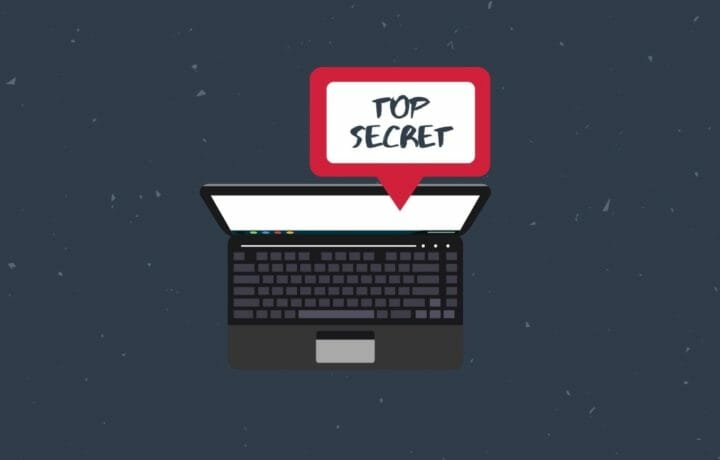The easiest way to fail a polygraph examination is to lie, but that’s not the only way. Since its invention in 1921, a constant crusade among subjects of the “lie-detector test” has been how to fib and get away with it; a more pressing question, perhaps, is what happens when you tell the truth and it dings you anyway. The term of art among polygraph examiners for people who tell the truth but register a lie is “guilt grabber.” Ironically, it can afflict those of outstanding integrity, who fail examinations because, due to an exceeding sense of responsibility, feel guilty for injustices that are totally unrelated to their actions or lives. Some are incorrectly flagged because they feel guilty for thinking about doing wrong.
FALSE FAILS – HOW IT HAPPENS
To understand how this happens, it’s useful to understand how the device works. First, between three and six sensors are attached to an examinee in order to measure his or her breathing rate, pulse, “skin conductivity” (perspiration), and blood pressure. Some tests also check for physical movements. The polygraph then outputs streams of data acquired from the sensors onto a graph.
At the start of the interview, the device’s operator formulates and asks diagnostic questions designed to register the examinee’s baseline physical responses. The operator then explains the device and how it works, and asks the examinee to lie. (This is called a “stim test.”) The operator responds that the device was able to detect the lie, and the test begins. Throughout the process, the examiner keeps an eye on the graphs and intersperses irrelevant questions with legitimate ones. If you’ve seen any cop show ever, you probably have a pretty good idea of what this looks like.
Here is how the polygraph does not work. Psychologists have not yet discovered (and might well never discover) the “Pinocchio response,” as it’s called. It bears mentioning that the polygraph doesn’t have a sensor attached to the brain. Neither the device nor its operator has any idea of what the examinee is thinking. It’s not actually detecting lies, but rather, is reporting physiological responses. Only the variation in response between control questions and relevant questions can suggest lying. (That’s why a polygraph doesn’t consist entirely of relevant questions.) Note also that there are different types of tests and questioning techniques. The examination for a murder suspect and the one for the janitorial position at NSA will be different.
You probably noticed that the stim test is a bit theatrical. An awful lot about the polygraph seems to depend on the examinee believing that the test actually works. There is a strong placebo effect at work; if you think the polygraph will catch you, you are more likely to be caught. To some extent, as the American Psychological Association noted, the lie detector is more accurately labeled a “fear detector.” In the absence of scientific evidence for the polygraph’s efficacy, there are many skeptics out there, and there are many techniques that purport to help you beat the test. It’s worth noting, however, that without careful training, it seems very difficult to successfully outfox the device. There’s a good chance that the CIA examiner is better at spotting a liar than you are at lying.
THE PROBLEM WITH POLYS
Still, whether we’re talking about the test missing a bad guy or accusing an innocent one, a good way to know for certain the esteem with which the polygraph is really held is to look at its reception in courts of law. As John Rawls, the American philosopher, once noted, “Justice is the first virtue of social institutions, as truth is of systems of thought.” And more than any other institution, the courts are in the justice business. If the FBI or CIA test you and wrongly adjudicate you over the course of a security clearance screening, that’s a bummer, but they don’t need to be correct 100% of the time. A clearance, after all, is not a right. But the courts are held to a different standard.
In Daubert v. Merrell Dow Pharmaceuticals, the Supreme Court ruled on the admissibility of scientific evidence. While the case wasn’t specifically about the polygraph examination, it did have the effect of allowing anyone to request a motion for a hearing on whether or not the polygraph can be admitted as expert evidence. In the years since, the courts have vacillated on whether or not the polygraph is reliable. In general, the decision of whether or not to allow the findings of a polygraph in court is left to the judge. (For what it’s worth, Military courts have outright banned the so-called “lie-detector,” and nobody ever claimed that the military judicial system was overly concerned with the rights of the accused.)
Until some quantum leap in technology provides the polygraph with a brain scanner, it seems unlikely that the courts will ever stand firmly behind the device. Likewise, the error rate will never reach zero—guilt grabbers beware. In the absence of a device that can actually detect lies, it seems, there are some people who are simply too honest for the lie detector.



